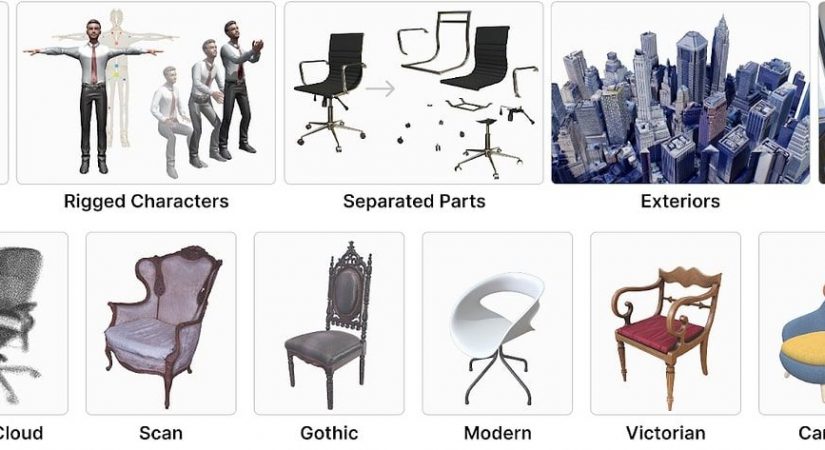The Allen Institute for AI has developed a new database called Objaverse, consisting of over 800,000 3D models of everyday objects with metadata. The database aims to provide AI models with a more realistic representation of spaces and objects, enabling them to better understand and navigate their surroundings.
Simulators, which are 3D environments meant to represent real-world places, often lack detail and interactivity, making it challenging for AI models to learn and recognize different objects. However, Objaverse’s diverse collection of models ranges from food to furniture to gadgets, covering all ordinary objects one might expect to see in a home, office, or restaurant.

The database’s photorealistic imagery, captured via photogrammetry, adds diversity and realism, enabling AI models to distinguish between different variations of common objects. For instance, recognizing the difference between a peeled and unpeeled banana or identifying a funky cut-glass lamp or one with a different shape.
Objaverse is intended to replace outdated object libraries like ShapeNet, which has about 50,000 less detailed models. By including variations on common objects, the database enables AI models to learn what defines them, despite their differences. The AI models can now identify and recognize objects with more precision and accuracy, enhancing their overall understanding of spaces and objects.

Benefits of Animated Objects in Objaverse
The database also includes objects that animate, enabling AI models to learn how they function and move from one position to another. For instance, knowing how a refrigerator, cabinet, book, laptop, or garage door looks when open or closed helps AI models understand how they function in the real world.
In conclusion, Objaverse is a significant advancement in the development of AI models’ understanding of spaces and objects. The database’s diverse collection of 3D models, including photorealistic imagery and animated objects, enables AI models to learn and recognize objects more accurately and realistically. Researchers can now access the database for free via Hugging Face, providing an opportunity to further explore and enhance the capabilities of AI models.
Read also: Is it possible to safeguard AI from text-based attacks?
